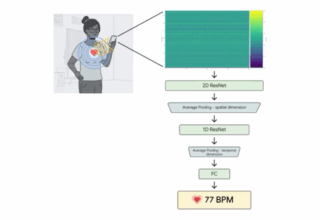Autism is a disorder that affects more than 1 percent of American children, and it is notoriously tricky to treat because scientists are yet to even determine the cause, never mind a cure.
From the existing research, it’s apparent that both genetics and environmental factors can have a role to play in autism, and this wide range of possible aggravations explains why the condition is mild for some and more extreme for others – autism is a spectrum condition after all, officially known as Autism Spectrum Disorder (ASD).
The variance in the severity of autism symptoms only makes treating the disorder even harder, as what may work for one patient could be ineffective for another.
Recent studies indicate that the brain’s inhibitory tone is adversely affected in most cases of autism, leading scientists to wonder whether the endocannabinoid system is influential and if cannabidiol (CBD) could help – boosting inhibitory signalling in the brain would perhaps mitigate symptoms.
Understanding autism
Autism is not easy to diagnose and requires extensive screening and evaluation. However, common symptoms include difficulties socializing and issues with motor control. Unpleasant noises and smells can induce negative emotional reactions in children with autism. Some struggle to maintain eye contact and prefer the solace of silence and alone time. However, symptoms are not always so blatant.
Gamma-Aminobutyric acid (GABA) is a neurotransmitter that is unable to effectively inhibit signalling in many patients with autism, and it’s this which causes hypersensitivity to certain stimuli, such as loud noises. It is the responsibility of GABA to calm the brain down and stop the overload of sensory signals to the organ. In autism patients, GABA issues can make it harder to socialize and improve language skills. Socializing issues with GABA inhibition are also found among those with anxiety, many of whom are also experimenting with CBD oil treatment.
There are multiple studies on rodents which show that boosting GABA can reduce social difficulties related to autism. An investigation on a normal group of mice at Stanford University involved inhibiting GABA with LED lighting – when the lights were turned on, the mice became less sociable. In a second experiment, mice with a deficiency of GABA were exposed to LED lights which stimulated the neurotransmitter – the boost in GABA improved their sociability.
Admittedly, this is not human research, although rodents are used during the initial experimentation phase because their brains are not dissimilar to humans. What the Stanford research has proven is that there is a link between social behavioral issues in autism patients and the GABA neurotransmitter. This gives researchers a starting point to develop an autism treatment that works for all.
Why CBD’s effectiveness against epilepsy is promising for autism
The problems of dampened inhibition in the brain extends beyond autism to epilepsy, and for some, the conditions are connected – more than one in four autism patients also experience epileptic seizures. Both are typified by excess activity in the brain, and therefore it’s possible that epilepsy medication may also be helpful for those with autism.
When the brain becomes overexcited, the inhibitory effects of the brain are marginalized – this imbalance causes seizures, and the more lopsided the brain is towards excitability the more common and severe those seizures are likely to be. Some epilepsy patients with intractable conditions experience more than 100 seizures every week.
However, over the past few years, CBD has regularly been found to be effective against epileptic disorders which were thought to be untreatable. As a result, the Food & Drug Administration recently took a ground-breaking decision to legalize a CBD-based sublingual spray as a medicine for rare, complex conditions. Some patients who once endured tens of seizures per day are now seizure-free thanks to CBD.
With CBD able to combat seizures and improve social skills by treating reduced inhibitory signals in the brain, the cannabinoid is clearly a promising treatment for autism. However, there are concerns that because of the damage that seizures cause, the brain becomes rewired due to changes in neuron communication. Researchers are still trying to determine if autism is caused by seizures in the early stages of life, or if the changes that seizures make to the brain, which offsets the balance between inhibition and excitation, are responsible.
If the brain is rewired early by seizures, then CBD and other cannabis-based treatments may not be effective at treating autism. However, if autism is simply caused by neurological imbalance, then CBD therapy has potential. Unfortunately, very little research looking at the effectiveness of CBD for epilepsy considers autism, except for one new study.
A pre-clinical trial on mice with both epilepsy and autism has shown that the latter can indeed be managed with CBD. The study looked at the social behaviors of the mice by comparing their interactions with other mice and inanimate objects. Mice with autism show the same level of interest toward a mice and inanimate object, however after being administered CBD, preference for the former increases considerably. It will be interesting to see if this research can be replicated in humans. There remains plenty to prove for CBD though, as the autistic mice study did not reveal how much the compound improved interaction.
How CBD can be given to children
Cannabis as a medicine for children will naturally provoke some controversy, but it’s important to consider that CBD is not intoxicating or psychoactive. While cannabis consumption induces a high, this occurs due to tetrahydrocannabinol (THC), another cannabinoid that makes different interactions with the endocannabinoid system.
The traditional way of consuming cannabis has been to smoke it, although this again is not viable for children. Many CBD users who self-medicate their conditions like to vape CBD e-liquid and vape oil, but the most suitable treatment for children is CBD oil, consumed sublingually (under the tongue), either from a bottle with a pipette or a spray.
These tincture oils are safe to consume and can be manufactured to be almost tasteless. Epidiolex, the CBD drug approved by the FDA for epilepsy, is a sublingual spray.

















